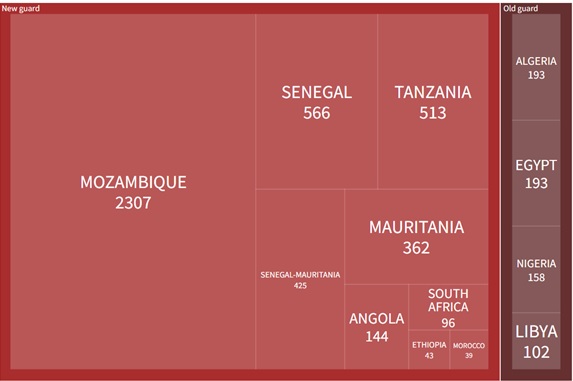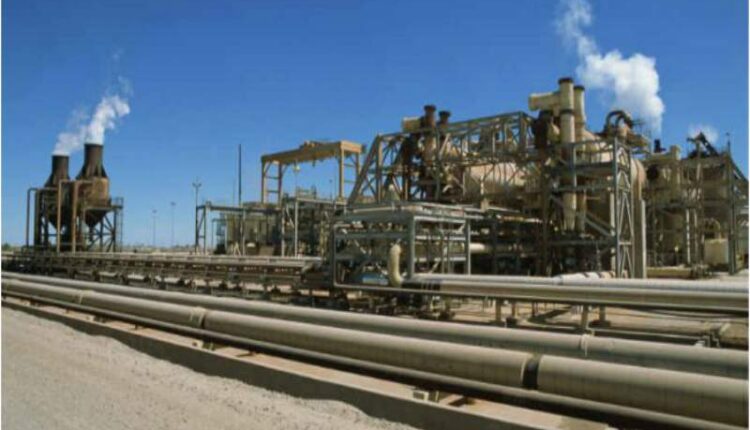The production of gas in Africa is undergoing a significant change with new countries entering the market, in particular to provide increased export volumes.
Historically, Nigeria, Egypt, Libya and Algeria have dominated most of the proven gas reserves and production, with these four countries accounting for 78% of Africa’s gas reserves in 2021, according to the US Energy Information Administration.
Despite this, according to data from the company’s Global Energy Monitor, 84% of new pre-production reserves are located in countries that have recently entered the African gas market.
These countries are Mozambique, Senegal, Tanzania, Mauritania, South Africa, Ethiopia and Morocco, according to information reviewed by the specialist energy platform.
New gas extraction hubs in Africa

These new reserves total more than 5 137.5 billion cubic metres, with potential emissions equivalent to about 11.9 billion tonnes of carbon dioxide. Production from many of these fields is facing opposition due to potential impacts on local ecosystems and communities.
These countries are expected to drive gas development volumes in the near term, with Mozambique, Mauritania, Tanzania, South Africa and Ethiopia accounting for over half of Africa’s gas production by 2038.
Algeria and Nigeria are expected to account for the majority of Africa’s gas export volumes between 2022 and 2025, with additional export volumes from Equatorial Guinea, Egypt, Mozambique, Senegal and Mauritania.
If industry plans for this wave of new gas field projects are allowed to proceed, gas production in Africa is expected to increase by a third by 2030.
New investments of US$329 billion are needed to develop gas extraction and export infrastructure.
Most of these gas field developments, however, are for export and do little to address the continent’s low electricity rates, while exposing Africa’s energy mix to the uncertainties of gas markets.


